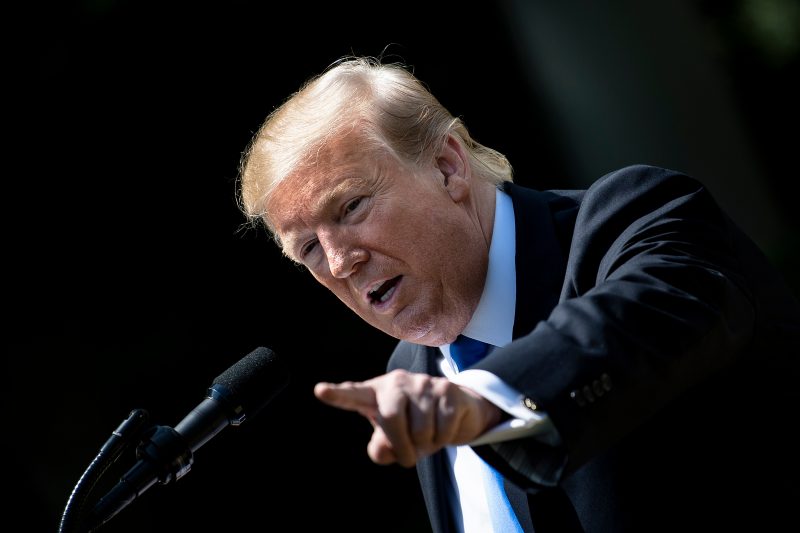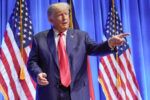Trump: Chinese trade officials coming to US ‘to make a deal’
Trump suggested he was comfortable either with making a deal or with leaving the tariffs in place (Brendan Smialowski)
Washington (AFP) – Chinese trade officials intend to “make a deal” when they arrive in Washington this week for talks, President Donald Trump said Wednesday, reviving hopes for negotiations that had appeared to hang by a thread.
However, Trump continued to ratchet up pressure on Beijing, pressing ahead with plans to raise US duty rates on $200 billion in Chinese merchandise — a prospect that has sent shivers through the global economy since last year.
US officials on Monday effectively canceled a six-month trade truce, accusing Chinese negotiators of backsliding on major commitments agreed to thus far in months of talks.
“China has just informed us that they (Vice-Premier) are now coming to the US to make a deal,” Trump said on Twitter, referring to top trade envoy Liu He.
But Trump suggested he was comfortable either with making a deal or with leaving the tariffs in place.
“We’ll see but I am very happy with over $100 Billion a year in Tariffs filling US coffers…great for US, not good for China!”
Meanwhile, the office of the US Trade Representative Robert Lighthizer released an official notice that duty rates on a vast array of Chinese-made electrical equipment, machinery, auto parts and furniture would more than double after midnight (0400 GMT) on Friday.
Following Trump’s first Twitter announcement Sunday on tariffs, stock markets around the world sank for two trading days. Wall Street was about flat shortly after 1400 GMT on Wednesday.
– Profound changes –
The world’s top two economies have exchanged tariffs on more than $360 billion in two-way trade, gutting US soy bean exports to China and weighing on the manufacturing sectors in both countries.
Trump also tweeted Wednesday that Chinese officials mistakenly hoped they could hold off to negotiate with a “very weak” future Democratic president “and thereby continue to ripoff the United States… for years to come.”
Amid robust US economic growth, American officials have long believed however that they are better positioned than Beijing to withstand the pain of a trade war.
Trump also repeated on Wednesday his view — with which economists and fellow Republicans in Congress differ — that it is trade adversaries like China who pay such duties and not US importers and consumers.
Washington has demanded far-reaching and profound changes to the Chinese economy, such as submitting state enterprises to market principles, reducing massive subsidies and ending the alleged “theft” of US technology.
Analysts say China will be reluctant to make many of these changes, which could undermine the Communist Party’s political powers.
According to media reports, Chinese negotiators have also resisted enacting laws to formalize their commitments.
Despite the trade war, US imports of Chinese goods have continued to rise, widening the soaring trade deficit with China.
Disclaimer: Validity of the above story is for 7 Days from original date of publishing. Source: AFP.


